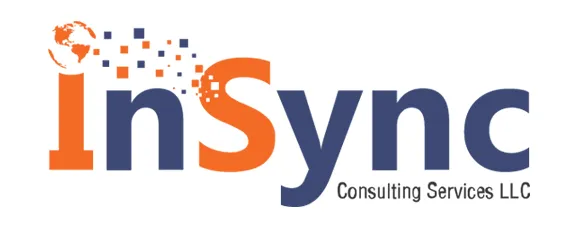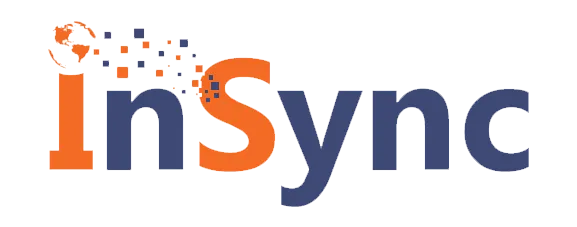
How Emerging Trends in IT Staffing are Transforming the Industry
The Information Technology (IT) industry is dynamic and rapidly evolving, with new trends and technologies constantly emerging. As businesses increasingly rely on IT to drive innovation and efficiency, the demand for skilled IT professionals continues to grow. However, the landscape of IT staffing is evolving due to technological advancements, changing workforce expectations, and global market dynamics.
In this blog, we will explore the emerging trends in IT staffing and their potential impact on the industry
Challenges in IT Staffing
Rapid Technological Advancements
One of the primary challenges in IT staffing is keeping up with the rapid pace of technological advancements. Technologies such as artificial intelligence (AI), machine learning (ML), blockchain, and cloud computing are constantly evolving, requiring IT professionals to continuously update their skills. This rapid change creates a skills gap, making it difficult for businesses to find candidates with the expertise needed to implement and manage these new technologies.
Skill Shortages
The IT industry is experiencing a significant shortage of skilled professionals. According to various reports, the demand for IT talent far outstrips the supply, particularly in areas such as cybersecurity, data science, and software development. This shortage makes it challenging for companies to fill critical positions, leading to increased competition for top talent and higher recruitment costs.

High Turnover Rates
High turnover rates are another persistent issue in IT staffing. The competitive nature of the industry means that IT professionals often receive multiple job offers and are more likely to switch jobs for better opportunities. This high turnover can disrupt projects, lead to loss of institutional knowledge, and increase recruitment and training costs for businesses.
Remote Work and Globalization
The COVID-19 pandemic has accelerated the shift towards remote work, transforming how businesses operate and manage their IT staff. While remote work offers numerous benefits, such as increased flexibility and access to a global talent pool, it also presents challenges. Managing a remote workforce requires robust communication tools, cybersecurity measures, and strategies to maintain team cohesion and productivity.
The Impact of These Challenges
Business Disruption
The challenges in IT staffing can lead to significant business disruptions. Skill shortages and high turnover rates can delay projects, reduce productivity, and impact the quality of IT services. For businesses relying on IT to drive innovation and maintain a competitive edge, these disruptions can have severe consequences.
Increased Costs
The competition for IT talent drives up recruitment and retention costs. Companies must offer competitive salaries, benefits, and career development opportunities to attract and retain top talent. Additionally, the cost of hiring and training new employees can be substantial, particularly when turnover rates are high.
Security Risks
The shortage of skilled cybersecurity professionals poses a significant risk to businesses. Cybersecurity threats are becoming more sophisticated, and without the right expertise, companies are vulnerable to data breaches, cyberattacks, and other security incidents. These risks can lead to financial losses, reputational damage, and legal liabilities.

Operational Inefficiencies
Managing a remote IT workforce can introduce operational inefficiencies. Communication barriers, time zone differences, and lack of face-to-face interaction can hinder collaboration and slow down decision-making processes. Additionally, ensuring that remote employees have access to the necessary tools and resources can be challenging.
Emerging Trends in IT Staffing
Upskilling and Reskilling Programs
To address the skills gap, many companies are investing in upskilling and reskilling programs. These initiatives focus on training existing employees to develop new skills and stay updated with the latest technologies. By investing in their workforce, businesses can ensure they have the expertise needed to implement emerging technologies and maintain a competitive edge.
Continuous Learning Culture
Promoting a culture of continuous learning is essential for keeping up with technological advancements. Companies can offer online courses, certifications, workshops, and access to learning platforms to encourage employees to continuously upgrade their skills. This approach not only addresses skill shortages but also enhances employee engagement and retention.
Leveraging Freelancers and Contractors
The gig economy is reshaping the IT staffing landscape, with many businesses turning to freelancers and contractors to meet their staffing needs. This approach offers flexibility and allows companies to access specialized skills on a project-by-project basis. Platforms like Upwork, Toptal, and Freelancer.com make it easier to connect with skilled IT professionals worldwide.
Benefits of a Flexible Workforce
A flexible workforce allows companies to scale their teams up or down based on project requirements, reducing overhead costs and increasing agility. Freelancers and contractors bring diverse experiences and perspectives, which can drive innovation and improve project outcomes.
Embracing Remote Work
Remote work is here to stay, and businesses are adapting their staffing strategies to embrace this trend. By offering remote work options, companies can tap into a global talent pool, attract top talent, and improve employee satisfaction. However, successful remote work requires effective communication tools, robust cybersecurity measures, and strategies to maintain team cohesion.
Implementing Remote Work Best Practices
To maximize the benefits of remote work, companies should implement best practices such as regular virtual meetings, clear communication protocols, and performance tracking systems. Providing remote employees with the necessary tools and resources, such as secure access to company networks and collaboration software, is also crucial.
Diversity and Inclusion Initiatives
Diversity and inclusion are becoming increasingly important in the IT industry. Companies are recognizing the value of diverse teams and are implementing initiatives to attract and retain talent from different backgrounds. These initiatives can include diversity hiring practices, inclusive workplace policies, and employee resource groups.
Benefits of Diverse Teams
Diverse teams bring a variety of perspectives and experiences, which can drive innovation and improve problem-solving. Inclusive workplaces also enhance employee satisfaction and retention, as employees feel valued and supported.
AI and Automation in Recruitment
Artificial intelligence (AI) and automation are transforming the recruitment process. AI-powered tools can streamline candidate sourcing, screening, and selection, making it easier for companies to find the right talent. Automation can also improve the candidate experience by providing timely communication and reducing the time to hire.
Enhancing Recruitment Efficiency
AI and automation can analyze large volumes of data to identify the best candidates based on skills, experience, and cultural fit. These technologies can also reduce bias in the recruitment process, promoting fair and objective hiring practices.
Partnering with Staffing Agencies
Partnering with specialized staffing agencies can help businesses navigate the challenges of IT staffing. Staffing agencies have extensive networks of qualified candidates and can provide tailored solutions to meet specific business needs. By leveraging the expertise of staffing agencies, companies can reduce recruitment time, lower costs, and ensure they have the right talent for their projects.
Benefits of Staffing Agencies
Staffing agencies handle the entire recruitment process, from sourcing and screening candidates to onboarding and compliance. This allows businesses to focus on their core operations while ensuring they have access to top talent. Additionally, staffing agencies can provide insights into industry trends and best practices, helping companies stay competitive.
The IT industry is evolving rapidly, and businesses must adapt their staffing strategies to keep pace with emerging trends. By addressing the challenges of rapid technological advancements, skill shortages, high turnover rates, and remote work, companies can build a resilient and agile IT workforce. Investing in upskilling and reskilling programs, leveraging freelancers and contractors, embracing remote work, promoting diversity and inclusion, utilizing AI and automation in recruitment, and partnering with staffing agencies are effective strategies to enhance IT staffing.
InSync Consulting Services offers innovative staffing solutions tailored to the unique needs of the IT industry. Our comprehensive services ensure that businesses have access to the right talent, at the right time, to drive innovation and achieve their goals. Contact us today to learn more about how we can support your IT staffing needs and help you navigate the complexities of the industry.
Schedule a Consultation Now
Contact InSync Consulting Services to schedule your free consultation and discover how our tailored IT staffing solutions can support your business.
Experience the benefits of flexible, efficient, and specialized staffing designed to meet your unique needs.
Partner with InSync and unlock the potential of your IT projects!




